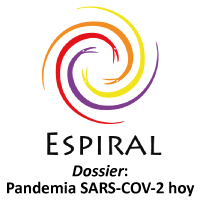Post pandemic, the movements of society and public social authority in Peru
DOI:
https://doi.org/10.15381/espiral.v2i4.19536Keywords:
Post pandemic, pachacuti, movements of society, public social authority, decoloniality of powerAbstract
This paper explores some of the factors for which a significant part of the working population did not abide by the social confinement decreed early in Peru. Secondly, the alternatives that are created and offered from social organizations and society movements are investigated in an introductory way, in a post-covid context, in which with the discourse of economic reactivation the elites tend to deepen the precariousness of work, the increase in the marginalized workforce and the growing authoritarian vigilance, as part of global politics, and which in the country is not recent, has existed for several years. All these moving forces suppose a pachacuti, that is to say a radical mutation. A research is approached from the decoloniality of power and gender perspectiva.

Downloads
Published
Issue
Section
License
Copyright (c) 2021 Carolina Ortiz Fernández

This work is licensed under a Creative Commons Attribution-NonCommercial-ShareAlike 4.0 International License.
LOS AUTORES RETIENEN SUS DERECHOS:
a. Los autores retienen sus derechos de marca y patente, y también sobre cualquier proceso o procedimiento descrito en el artículo.
b. Los autores retienen el derecho de compartir, copiar, distribuir, ejecutar y comunicar públicamente el artículo publicado en la revista Espiral (por ejemplo, colocarlo en un repositorio institucional o publicarlo en un libro), con un reconocimiento de su publicación inicial en la revista Espiral.
c. Los autores retienen el derecho a hacer una posterior publicación de su trabajo, de utilizar el artículo o cualquier parte de aquel (por ejemplo: una compilación de sus trabajos, notas para conferencias, tesis, o para un libro), siempre que indiquen la fuente de publicación (autores del trabajo, revista, volumen, número y fecha).





